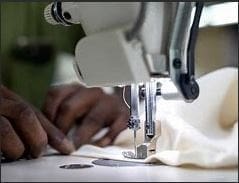No other industry than Fashion has seen a massive sustainability boom in recent years. Though it has the befitting reason for that as well. Fashion as we know today was quite different from just a century ago. The industrial revolution and the introduction of machines in the manufacturing process of almost every sector had quite a good and bad effects in terms of employment and environment.
Talking about fashion, have you seen the ads of ‘spring collection’ or ‘summer collection’? Of course you have. The pace at which the fashion conglomerates are introducing the seasons of their new lines, it will surely outpace the original seasons. Some are even debating that now there are 365 seasons every year for one day each.
Fast fashion and slow fashion are two contrasting business models in the fashion industry. Fast fashion is the mass production of trendy, cheap clothing, while slow fashion is the production of sustainable and high-quality clothing that lasts longer. The fast fashion industry relies on cheap labor in developing countries, contributing to human exploitation in the form of low wages, poor working conditions, limited workers’ rights, child labor, and forced labor. Additionally, the textile industry has become one of the world’s top polluters, with nearly 10% of global carbon emissions being attributed to it.
On the other hand, slow fashion is about creating clothes that are made with care and respect for the environment and for the people who make them. This involves using natural, biodegradable materials such as organic cotton, linen, and hemp, as well as recycled and upcycled fabrics. Slow fashion also supports fair labor practices and aims to produce high-quality clothing that is designed to last.
One example of the fast and slow fashion collision is at the headquarters of Zara-owner Inditex in A Coruna, Spain. The growing demand for the clothing industry to become more sustainable clashes with the constant need to drive sales. However, Inditex is changing some of its processes to become more sustainable.
To combat the negative impact of fast fashion on the environment and human rights, there are several alternatives consumers can consider. These include buying secondhand clothing, purchasing from sustainable and ethical fashion brands, and investing in higher quality clothing that is designed to last.

